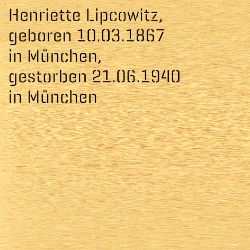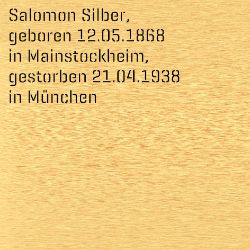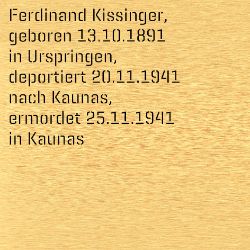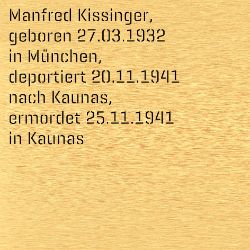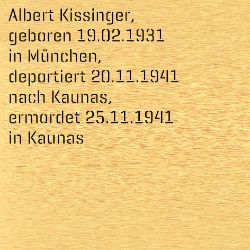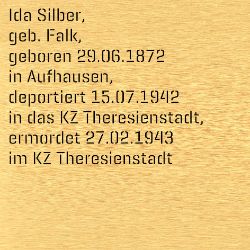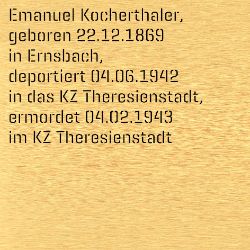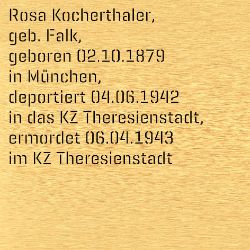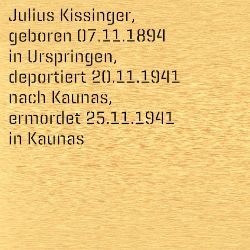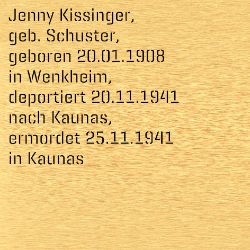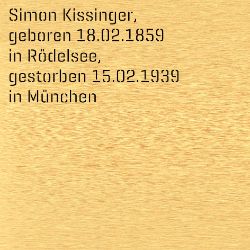Centa Gitl Silber was born on April 28, 1901 in Munich. Together with her mother Ida Silber, née Falk, her father Salomon, and her four siblings, she moved into the ground-floor apartment at Bürkleinstraße 16 (today 20) in 1916. The family was Jewish orthodox. For most of his life Salomon Silber was an active member of the chevra kadisha, the traditional Jewish burial association. Centa Gitl Silber was appointed First Secretary of the Jewish community of Munich and worked also for the Bavarian association of Jewish communities. She was the first contact point when community members had questions, worries, and faced particular hardships, having a sympathetic ear for their concerns. Even after the Nazi seizure of power, there was frequently tension between orthodox and liberal groups in the Jewish community. Centa Gitl Silber succeeded in working for both, gaining the respect of everyone. After “suffering from a long-term ailment,” as death notices put it, she died on November 25, 1937, at the age of thirty-six. One day later, her burial at the New Jewish Cemetery in Munich was attended by large numbers wishing to express their grief and gratitude. The board and office of Jewish community and the Bavarian association placed obituaries in the community newsletter, paying tribute to the young woman: she was “[...] the good soul of our community and has erected a memorial in the hearts of us all; her memory will never fade.” Centa Gitl Silber’s father died only a few months later. In 1942, the Gestapo (Secret Police) deported her mother Ida Silber to Theresienstadt ghetto, where she was murdered by the SS on February 27, 1943. Her four siblings survived the Shoah. Her sister Karola had already emigrated to Palestine in the 1920s. The brothers Siegfried and Bruno Silber followed her in 1933. Fritz Silber succeeded in fleeing to New York in 1941. (text Felicia Englmann, editor C. Fritsche, translation P. Bowman)




